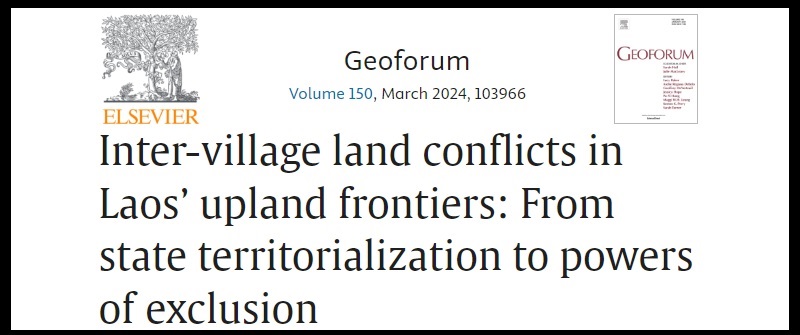
27 Feb Article | Inter-village land conflicts in Laos’ upland frontiers
New article by Diana Suhardiman et al. in Geoforum, ‘Inter-village land conflicts in Laos’ upland frontiers: From state territorialization to powers of exclusion’.
State territorialization, how the state exercises its power to impose its predefined conception of development and modernity in the context of land governance, is a widespread phenomenon in the Global South. In Laos, state territorialization strategies form an integral part of the state’s regimes of dispossession. This is most apparent from the state’s ability to impose, design, and implement national policies and programs in line with the state’s political and economic objectives, resulting in the expropriation of local community’s land by more powerful actors. We argue, however, that territorialization strategy is not the monopoly of the state. On the contrary, different groups of villagers strategically position themselves in their struggles for land, often at the expenses of other villagers, through the making of new forms and types of territories.
Taking two neighboring villages as our case study, we illustrate how villagers take center stage in reconfiguring and reproducing the state’s regimes of dispossession through powers of exclusion.
We show: 1) how the creation of local regimes of dispossession is closely interlinked with the state’s internal resettlement and land use planning program; 2) how it is conditioned by market-based processes of rural differentiation that occurred alongside changing perceptions of land value; 3) how inter-village scrambles for land have been driven by the tea boom and farm households’ decisions to transition from swidden agriculture to commercial tea cultivation; and 4) how it is manifested in unresolved inter-village land conflicts.




No Comments